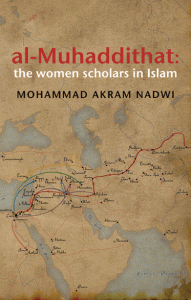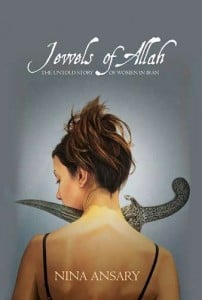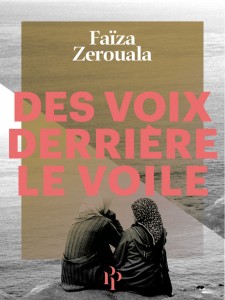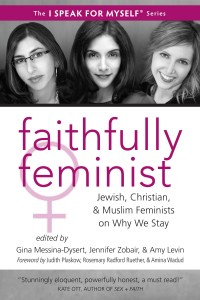I bought this book after reading a review in the New York Times. The review largely described Al-Muhaddithat as a women-focused yet Islamically-indigenous text that could lead to the rediscovery of women’s importance in Islam.

The book is written by Mohammad Akram Nadwi, a Muslim scholar who puts emphasis on what he sees as a women’s role in Islam (what he considers an “appropriate” role) but does not advocate for “Westernized” customs like mixing between sexes. Nadwi, a Sunni scholar and specialist in the science of hadith, is often grouped with scholars like Yusuf Qaradawi and ‘Abdal-Fattah Abu Ghudda. He belongs to a more orthodox realm of Islam that adheres to traditional interpretations of the sacred texts.
This book is somehow a historical text but also a theological statement on his particular views. The book is rich in primarily Sunni historical sources, hadith and sunnah. However, unlike the works of scholars like Fatema Mernissi who use hadith, sunnah and historical critical approaches, especially in her book the Veil and the Male Elite, Nadwi does not necessarily set out to present a critical reading of the position of women in Islamic scholarship. Indeed, he reaches a different conclusion when it comes to analyzing the historical evidence.
The text goes through a number of topics concerning women’s ability (or inability) to perform scholarly roles in Islam, including issues of narration of hadiths, ability or inability to provide testimony, women’s role in Islamic education (studying and teaching), fiqh (jurisprudence), fatwas, etc. It is rich in a variety of hadiths narrated by women or about women, and it sometimes discusses differences of opinions (which for me show how Islam has always been diverse) in regards to women’s issues. Much of the sources used come from texts written and analyzed by male scholars, which, Nadwi explains, is due to the lack of information about women’s work. This, he says has to do with the concept of “hijab,” which has often kept women’s accomplishments in the private domain. To date, he told the New York Times, he has found about 8,000 female scholars, including female hadith narrators (such as the wives of the Prophet, for example) and female teachers of Islamic sciences, dating back to the earliest days of Islam.
Nadwi concludes that women do have important roles in Islamic scholarship and that this should be acknowledged and recognized, but he does not provide any further steps for transformation of the current institutional situation. As Carla Power writes, quoting Nadwi,
“The Muslim women who taught men ‘are part of our history,’ he says. ‘It doesn’t mean you have to follow them. It’s up to people to decide.’”
As a Muslim woman, I felt compelled to acquire the book due to what I consider the need to acknowledge women’s Islamic scholarship (whether progressive, conservative, orthodox, etc.). Yet, I expected a bit more than just historical data, since the reviews talked about empowerment, female visibility and women’s “true” role in Islam.
Some of the reviews (like here and here) consider Nadwi’s book to be empowering for Muslim women as it somehow “proves” that women are not oppressed by Islam but rather by the patriarchal structures built around institutional Islam. Nonetheless, I found myself having trouble reconciling the historical evidence provided in the text with the preface that Nadwi writes to introduce it.
The preface explicitly shows an interesting dichotomy in Nadwi’s work. On the one hand, Nadwi seems to contest what he considers the “Western claim” that Islam oppresses women and excludes them from the public domain. He also implies that the West is the one that oppresses women. On the other, he responds to Muslim feminists (or feminism in general, which he portraits as a homogenous movement) by saying:
“The aim of undoing injustices suffered by women […] is entangled with the theoretical underpinning of feminist critique, which is not acceptable but which nevertheless invades Muslim minds.” (p. XIV)
Although he acknowledges that he is “not qualified” to talk about a feminist perspective, he implies that feminism is mainly concerned with the question of “if men can, why can’t women.” He debates this issue, only to conclude that this approach (which for him equates to feminism) does not help women’s position. He further justifies his conclusion by saying that female Muslim scholars were only “believers,” plain and simple, sticking to what God had granted them rather than making explicit claims relating to women’s rights or equality. Nadwi argues that there is no grounds to think that the female scholars featured in his research were by any means feminists.
The text also continues to emphasize female scholars’ importance as mothers and wives, while highlighting in many instances the issue of veiling and hijab, which Nadwi himself praises for its “benefits” to women.
An interesting thing that caught my attention was the fact that the author warns about “misusing” the book by applying a gender perspective or framework to it. Yet, he seems to conflate the idea of gender analysis with feminist perspectives. These perspectives, he explains, do not have grounds in the sunnah. This was interesting for me because for two reasons. First, since the book focuses on female scholars in Islam, the author’s work is necessarily determined by gender. Similarly, his own purpose to bring out women’s contributions to Islamic scholarship is very much a subject of gender analyses. Then, I found that the rich and excellently documented historical data provided by this book is valuable to perform a number of analyses in different realms including gender, feminism, women studies, and so on (and that’s how I plan to use it).
This text (leaving aside Nadwi’s own agenda) will speak differently to every reader. For some it will be a very complete commentary on Islamic scholarship; for others, it will provide an orthodox perspective on women’s role in Islam. Nevertheless, despite the optimistic reviews, I find this text useful but not necessarily empowering. Nadwi still has an agenda to contest the “Westernization” of Muslim scholarship and feminist movements that threat to “misuse” Islamic knowledge. While I expected this after the first ten pages, I cannot help but wonder, when will Islamic scholars look at the usefulness of using other approaches, and when will they recognize that feminism (in its many forms) and “Westernized approaches” may enrich Islamic knowledge instead of undermining it?











